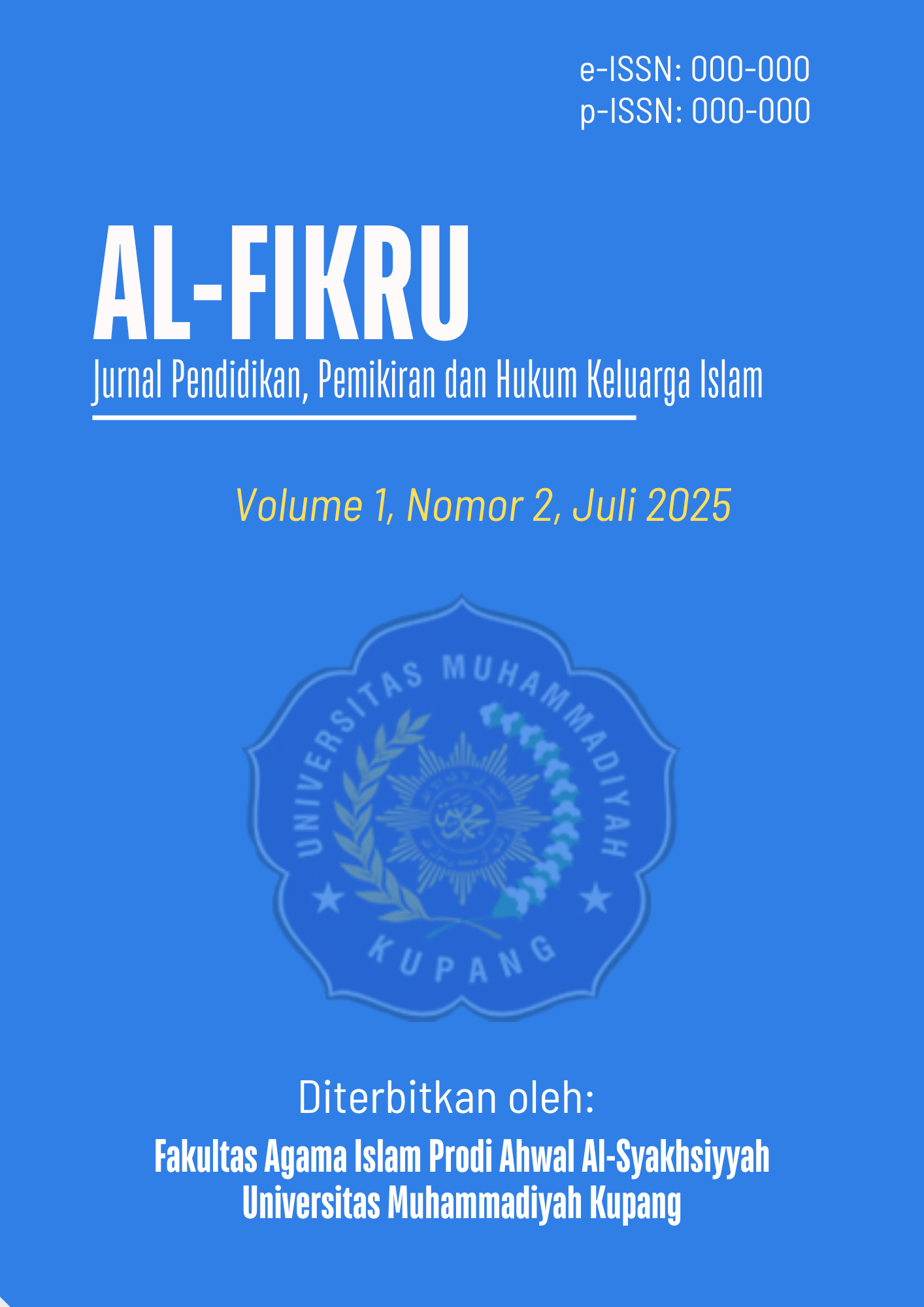LARANGAN PERKAWINAN TERHADAP PEREMPUAN KETURUNAN ARAB (SYARIFAH) DENGAN LAKI LAKI PRIBUMI DALAM PERSPEKTIF FIQIH MUNAKAHAT (STUDI DI KELURAHAN KELIMUTU KOTA ENDE)
Abstract
This study examines the tradition of prohibiting marriage between Arab-descended women (Syarifah) and indigenous Indonesian men in Kelurahan Kelimutu, Ende City. This tradition is still upheld by some Arab descendant communities as a way to preserve lineage purity, family honor, and tribal values. In their view, a marriage between a Syarifah and a non-Sayyid or non-Arab man is considered a violation of inherited family and religious values.This research uses a qualitative approach with data collected through in-depth interviews, observation, and documentation. The data were analyzed by reducing, presenting, and drawing conclusions from the information obtained from various sources.The findings show that the prohibition is primarily rooted in cultural understanding and socio-religious interpretations that prioritize kafa'ah (compatibility) in marriage, especially lineage compatibility. However, from the perspective of Islamic marital jurisprudence (fiqh munakahat), such a prohibition lacks strong sharia basis, as Islam emphasizes piety (taqwa) as the main foundation in choosing a spouse, as reflected in Surah Al-Hujurat verse 13 and various sayings of Prophet Muhammad that reject lineage-based fanaticism. Contemporary scholars such as Dr. Kairudin Nasution, Dr. Ryanta, Dr. Supriatna, and Dr. Jazimah also affirm that marriage should not be hindered solely due to lineage differences, as long as both parties consent and fulfill the legal requirements of marriage.




